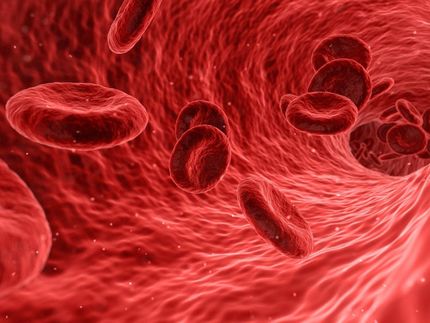Tumour blood vessels prevent the spread of cancer cells
Advertisement
A lack of the protein endoglin in the blood vessels of tumour-bearing mice enables the spread of daughter tumours, according to researchers at Karolinska Institutet and Lund University. Given that the tumour vasculature constitutes an important barrier to the spread of cancer cells, the team suggests that drugs should be developed to strengthen the blood vessels’ protective function.
Studies of the process of metastasis (the spread of daughter tumours) have mainly focused on how the properties of the cancer cells themselves promote their spread. For the present study, however, the researchers studied the function of a specific signal pathway consisting of the protein endoglin in the vasculature of tumour-bearing mice. They discovered that when the gene that codes for endoglin was missing in the blood vessels in tumours in the breast, lung or pancreas, it led to increased metastatic spread to other organs.
“The study shows that the blood vessels play an important role in preventing the spread of tumour cells through the blood stream,” says Kristian Pietras, professor at Lund University and also affiliated to Karolinska Institutet. “This is because blood vessels lacking in endoglin change in a way that makes it easier for the cancer cells to enter the blood stream and spread to other organs. So with this in mind, we suggest that drugs should be developed to strengthen the barrier function of the blood vessels to prevent the spread of cancer.”
The results of the study are also of significance to patients with the rare congenital syndrome Hereditary Hemorrhagic Telangiectasia (HHT), which in some patients is caused by the lack of onecopy of the endoglin gene. HHT causes deformities of the blood capillaries and increases the risk of haemorrhage. The researchers believe that HHT patients afflicted by cancer should be monitored particularly closely since their vascular barrier against metastatic spread might be defective.
“At the same time, we also show that tumours that have developed in mice lacking the endoglin gene are considerably more sensitive to treatment with a certain kind of antiangiogenic drugs that target the growth factor VEGF,” says Professor Pietras. “HHT patients with cancer may therefore benefit greatly from the VEGF blockers currently in clinical use.”
“Going by the results of our study, we also suggest, paradoxically, that a combination of drugs that block endoglin and VEGF should be tried as an effective cancer therapy; a solution thatis already being tested in clinical studies in the USA,” he adds.
Original publication
Charlotte Anderberg, Sara I Cunha, Zhenhua Zhai, Eliane Cortez, Evangelia Pardali, Jill R Johnson, Marcela Franco, Marta Páez-Ribes, et al., ‘Deficiency for endoglin in tumor vasculature weakens the endothelial barrier to metastatic dissemination’, Journal of Experimental Medicine, 2013.






















































